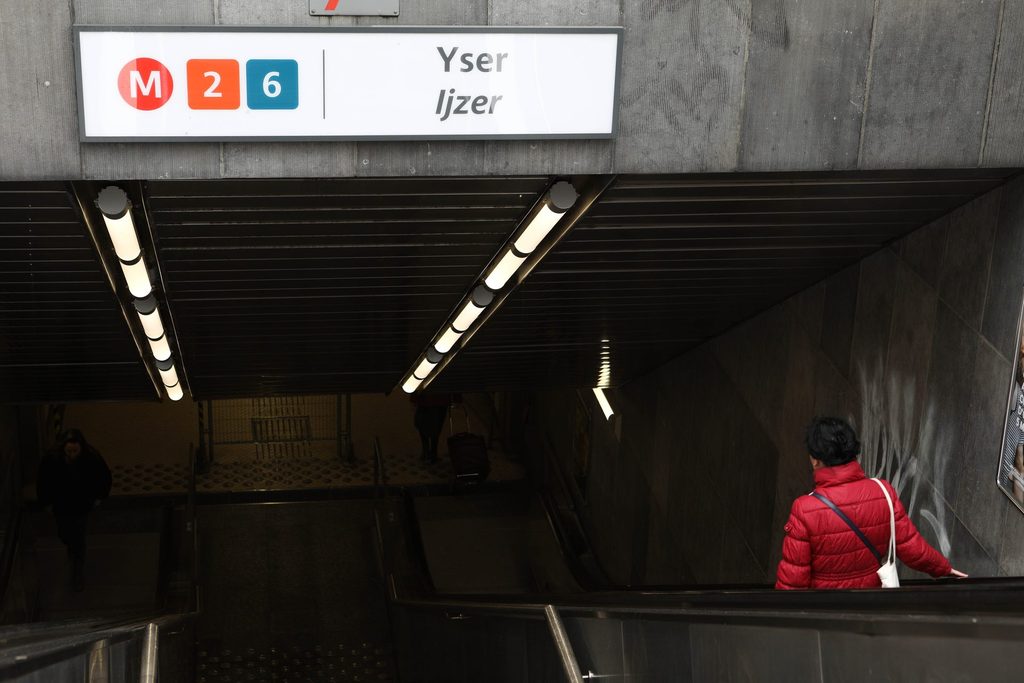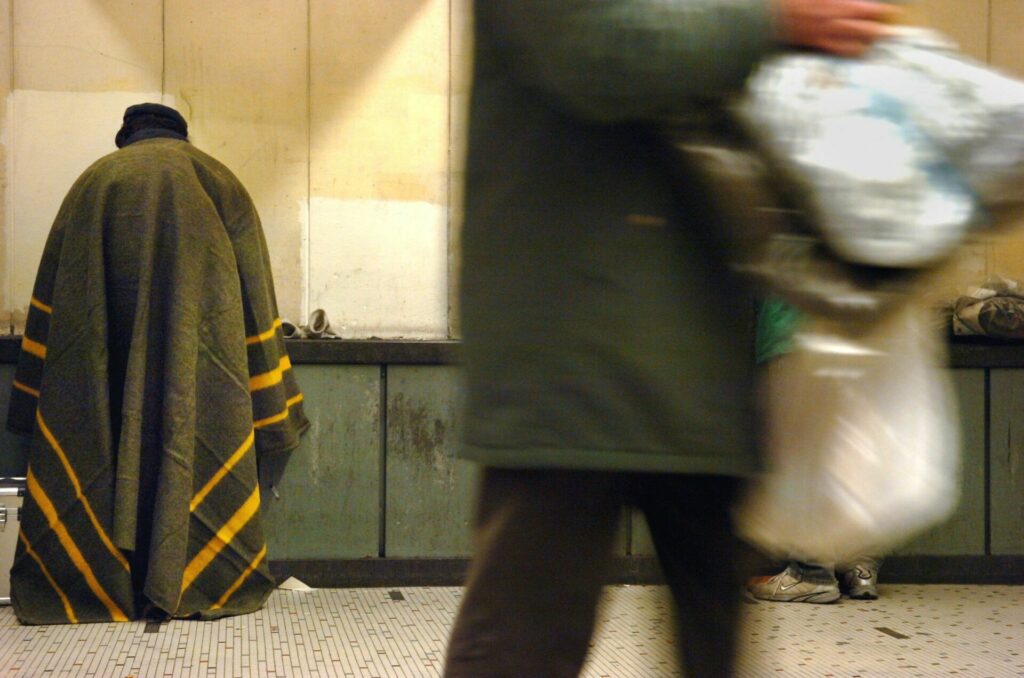The drug epidemic in Brussels has claimed its first victim: a person who died in April last year after being hit by a metro was found to have been "almost certainly" under the influence of drugs.
At 05:15 on 14 April last year, one of Brussels public transport company STIB's employees driving at full speed between the Ribaucourt and Yser stations performed an emergency stop after feeling his metro hit something.
They quickly realised that he hit a man who was walking along the tracks in the metro tunnel. The man died instantly. The Ribaucourt and Yser metro stations, in particular, are notorious for the large numbers of people suffering from addiction staying there. Following the confirmation of death, the Brussels Public Prosecutor's Office immediately launched an investigation, De Standaard reports.
Investigators found that no third parties were involved in the accident and that the victim was "almost certainly" under the influence of drugs at the time of the accident, said Federal Justice Minister Paul Van Tigchelt (Open VLD) in a Parliamentary question last week. The victim, born in 2001, was addicted to drugs and hid in a metro tunnel to avoid sleeping on the street.
Link with drug epidemic
This marks the first time that a fatal accident in a Brussels metro station has officially been linked to the drug epidemic in the Capital Region, which has been growing since the Covid-19 crisis.
Over 700 homeless and poorly housed people live in the Brussels metro stations. In stations such as Yser, Porte de Namur and Porte de Hal, the emergency services often have to intervene – sometimes several times a day, to put out fires, break up fights, or help people in distress.
Figures by Brussels public transport company STIB about reports about drug use on its network also paint a worrying picture: the number almost tripled last year: from 1,685 in 2022 to 4,402 in 2023. On average, that amounts to 12 reports per day.
Additionally, the number of reports about people walking on the tracks also increased sharply: in 2018, metros had to be stopped "just" 144 times because of people walking on the tracks illegally. By 2023, this figure almost tripled to 884. At least three of these incidents last year involved fatalities.

Credit: Belga/Paul-Henri Verlooy
STIB sees a clear connection with the rise in the number of homeless people and drug addicts in the metro network. Last week, STIB spokesperson An Van hamme confirmed to The Brussels Times that the phenomenon of people getting stuck in roller shutters is also related to the problem of homeless people and drug addicts, who try to enter stations and even force open the roller shutters.
"To take drugs, addicts often penetrate deep into our stations. In doing so, they risk their own lives," said Van hamme. Not only are metro trains circulating, the tracks are also under a voltage of 900 volts – meaning people are at risk of being electrocuted.
For this reason, the Brussels Regional Government launched the SubLINK project last summer, through which it guides drug addicts to counselling via different ways. However, for the victim in the metro tunnel between Ribaucourt and Yser, all help came too late.

